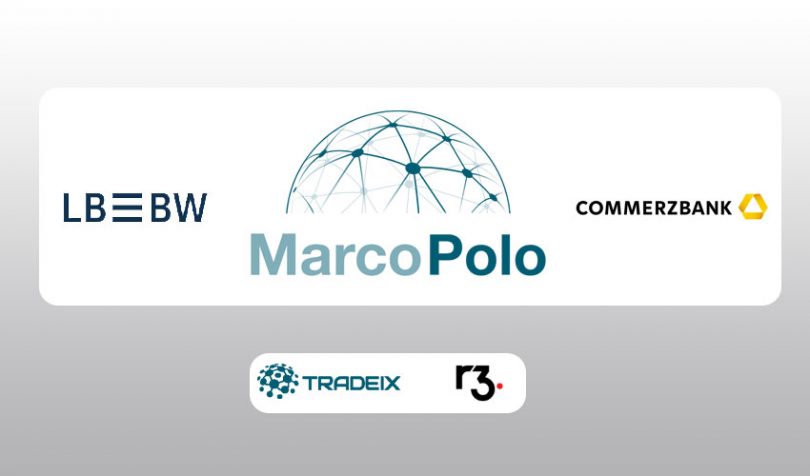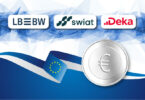Highlights
- Commerzbank and LBBW run trade finance pilot on Marco Polo
- Involved a bank payment commitment from buyer’s bank and trade finance from supplier’s bank
- Key benefit is automation reduces time-consuming paperwork
- Next pilot will involve ERP integration
Today German banks LBBW and Commerzbank announced the successful completion of their first pilots on the Marco Polo trade finance blockchain network. The data transfer for transactions between engineering technology company Voith and pump and valve manufacturer KSB SE were carried out digitally.
Marco Polo is one of the large international trade finance networks based on R3’s Corda blockchain technology with TradeIX as the technology provider and network operator. The network has 17 member banks with Commerzbank joining at the very beginning and LBBW last year. Last month Sumitomo Mitsui Banking Corporation executed a proof of concept on the network. Today we published an in-depth feature on Marco Polo.
There were two trade finance aspects for this pilot, a payment commitment from the buyer’s bank and trade finance by the supplier’s bank.
The parties agreed on order and delivery details via the Marco Polo network as well as a conditional payment commitment from the buyer’s bank. The condition was that the goods were delivered to the buyer’s satisfaction. Hence once the delivery details were entered, they were automatically matched with the agreed conditions triggering an irrevocable payment obligation similar to a bank guarantee from the buyer’s bank.
In addition to the certainty of payment, the supplier’s bank also provided financing using the Marco Polo network.
In one of the transactions hydraulic couplings were sent from Germany to China and in the other pumps were delivered within Germany.
Benefits
The key benefit of the network is to automate much of the process by reducing reliance on labor-intensive paperwork.
“It will make transactions faster, easier and more secure,” commented LBBW board member Dr. Christian Ricken. “Not only are we breaking new ground in terms of technology, but also in the cooperation between banks and businesses.”
Future tests will involve ERP integration with customer systems, so the data is pulled directly from their back office functions. There are also plans for integration with transport and insurance providers.
“The cooperation with LBBW and Commerzbank offers us an opportunity to actively shape and incorporate the company’s perspective into the further development of the products on offer (here the payment commitment),” said Gerald Böhm, head of Guarantees and Trade Finance at Voith.
Nikolaus Giesbert, divisional board member for Trade Finance & Cash Management at Commerzbank commented that “the transaction proves that blockchain technology offers our clients a payment undertaking and state-of-the-art financing for trade transactions with both foreign countries and domestically.”
Commerzbank’s and LBBW’s other blockchain activities
Commerzbank is quite active in the blockchain sphere. It is also working with the German innovation group Fraunhofer IML to explore the future of exports and trade finance. Earlier this year it executed two money market tests, one with Deutsche Börse and another with Siemens and Continental. Last year it also tested foreign exchange transactions and took part in the Spanish stock market (BME) warrants test.
LBBW also has some blockchain pedigree. In mid-2017 it worked with Daimler for a €100 million ($88m) “corporate Schuldschein”, similar to a bond. And in February this year, it executed a money market transaction using R3’s Corda.







